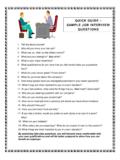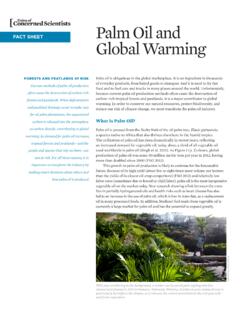Transcription of THE PROBLEM WITH ‘ACEs’ - blogs.kent.ac.uk
1 The PROBLEM with ACEs'. Edwards et al.'s submission to the House of Commons Science and Technology Select Committee Inquiry into the evidence-base for early years intervention (EY10039). 12 December 2017. THE PROBLEM WITH ACEs'. EY10039: Edwards et al.'s submission to the House of Commons Science and Technology Select Committee Inquiry into the evidence-base for early years intervention. (12 December 2017). Authors: Professor Rosalind Edwards, Professor Val Gillies, Professor Ellie Lee, Dr Jan Macvarish, Professor Susan White, Professor David Wastell. Contact: Dr Jan Macvarish, Introduction This submission aims to encourage the Committee to consider that, as in any area of science and policy, evidence concerning the existence o,f and cure for, Adverse Childhood Experiences (ACEs) is unresolved and still contested. We are concerned that the remit of the Committee may be limited by a presumption that evidence for both ACEs and successful preventive intervention is already established, pre-empting the Inquiry's aim to examine the strength of the evidence linking adverse childhood experiences with long-term negative outcomes'.
2 There are good reasons to be circumspect. The notion of Adverse Child Experiences is the latest in a long line of diagnoses of, and simple solutions to, complex social issues in the search for interventions that work'. The ACEs approach is not a neutral, evidence-based diagnosis. Rather, it reflects certain presumptions and is driven by particular agendas and interest groups (for example, what has been labelled the First Three Years Movement'). The ACEs approach, as with other attempts to diagnose and label sections of the population as deficient, has the potential for damaging consequences for the children and adults who are said to possess such deficiencies. Further, viewing social issues through the prism of ACEs may well inhibit our ability to identify and respond to human needs. Embracing the promise of prevention sounds positive and common sense, but the scientific basis for early intervention programmes is open to question, with evidence of success quite 1 The PROBLEM with ACEs'.
3 Edwards et al.'s submission to the House of Commons Science and Technology Select Committee Inquiry into the evidence-base for early years intervention (EY10039). 12 December 2017. ambiguous and the negative consequences of prevention-thinking rarely acknowledged. It is also important to note that researchers who critique the current policy thinking do not do so from the same terrain as those who develop new policy initiatives and intervention programmes. They are often scholars with a depth of knowledge of previous social intervention projects (successful and unsuccessful), alert to questionable scientific-sounding claims and with a knowledge of the global origins of new policy agendas. The level of resources directed to providing the quick evidence for early intervention programmes is disproportionate to the funding available to those wishing to investigate and question the foundations of the early intervention paradigm. It is important that Committee members pay attention to informed critical voices where they do exist.
4 We write this submission as a group of social scientists with considerable knowledge of social policy interventions stretching back beyond the beginnings of the welfare state. Our group has all engaged in the study of early intervention and the use and abuse of scientific claims-making (the misuse of scientific language and metaphors to build the case for public funding). In the limited space available, we set out some questions concerning the scientific knowledge and evidence put forward by ACEs advocates and share some of the concerns we and others have arrived at following a number of years of research in the field. We would welcome the opportunity to present our questioning of the ACEs approach before the Committee. A. Science, evidence and knowledge It is important that assertions of social problems and solutions that claim to be based in the science' or to be evidence-based' are not taken simply at face-value. As social scientists, we are familiar with fundamental principles of scientific method, but we also consult with practising scientists in order to engage effectively with research and policy that purports to be scientific.
5 In our work, we have evaluated the methodological foundations involved in providing evidence for social PROBLEM diagnoses and for the success (or otherwise) of early intervention solutions. We have forged intellectual alliances with neuroscientists, psychologists, epidemiologists and medical researchers to become informed about the state of scientific knowledge in the fields which are most often drawn upon by early intervention programmes, notably, neuroscience and epigenetics. We consistently find that scientists themselves are far more modest in their 2 The PROBLEM with ACEs'. Edwards et al.'s submission to the House of Commons Science and Technology Select Committee Inquiry into the evidence-base for early years intervention (EY10039). 12 December 2017. assessment of the current understanding of the mechanisms by which environments or experiences affect the biology of individuals, than are those who propose policy initiatives which purport to be based on such scientific discoveries.
6 A useful distinction can be made between science and scientism', that is, a tendency for policy advocates to borrow the language and authority of science to legitimise their calls for particular forms of government action. An inquiry which can distinguish between science and scientism needs to be alert to the following: 1. Skewed evidence The evidence considered in ACEs advocacy is skewed through three main routes: assertions of biological risk, retrospective reporting and self-evaluation. A common criticism is that studies which claim to have identified the PROBLEM ' tend to extrapolate from research on clinical populations and highly controlled experiments in animal laboratories to make claims about the wider human population. Primary researchers regularly criticise the assumptive base and accuracy of this translation and its claims to predictive validity. Further, ACEs studies rely on participants recalling their childhood experiences.
7 This is a notoriously inaccurate way of establishing causation not least because such recollections are subjective and unverifiable. Individuals who do not see themselves as experiencing problems in adult life may not report conditions or relationships which may well have been negative but which they see themselves as having overcome. In contrast, individuals who are experiencing difficulties as adults may be more inclined to recall problematic aspects of their childhood experiences. In proposing solutions, evaluation studies showing the effectiveness of specific intervention programmes are often conducted by vested interests : the programme originators and/or the services delivering the intervention, rather than by completely independent researchers. 2. Questionable results The bringing together of diverse variables conceptualised as Adverse Childhood Experiences'. may obscure variations in cause and effect . Unless appropriate statistical modelling is used, random variation can be mistaken for real effects.
8 The problematic outcomes which ACEs are said to predict include mental health problems, educational under-achievement, unemployment, criminal behaviour, obesity, cancer, heart disease and diabetes. With such a 3 The PROBLEM with ACEs'. Edwards et al.'s submission to the House of Commons Science and Technology Select Committee Inquiry into the evidence-base for early years intervention (EY10039). 12 December 2017. broad remit, confounding factors are very difficult to exclude. Further, the average effects of preventive programmes on development are quite modest, mostly not much larger than Cohen's criterion for a weak effect (d=.20). The result has been an escalating enterprise to improve the effect size using different methods, most recently exploring genetic and epigenetic targeting of interventions and the use of bio-markers in programme evaluation. 3. Statistical power and transferability Attempts to duplicate findings from studies, including randomised controlled trials, often do not come up with the same results.
9 This PROBLEM is known as the replication crisis , and is attributed to poor statistical practice and/or variations in social contexts (such as the availability of other supports locally and nationally). In terms of statistical practice, evaluation studies of interventions are often underpowered, with small sample sizes that cannot support generalisation , and no application of corrective statistical tests. B. The social science critique From our vantage point as social scientists, there are several ways in which the ACEs perspective might be subject to question. 1. The biologisation of social experiences The ACEs approach claims that negative childhood experiences become embedded in the body of the individual, resulting in mental and physical difficulties in later life with attendant costs for society. Advocates assert, your body remembers what the mind forgets' . ACEs advocates talk of a cumulative dose response' and of the toxic stress' induced by negative experiences as though these are matters of medical fact.
10 They are not, they are overly fatalistic metaphors . This attempt to convert complex social experiences into biological, chemical effects excludes the power of the human mind to translate what may look like similar experiences in a variety of ways. Large cohorts of individuals who have experienced the most horrific things, such as concentration camps or military engagement, have been able to live a fulfilling existence once a more normal life is restored. ACEs turn the individual into an object who is subjected to experiences, not a human being who interprets them 4 The PROBLEM with ACEs'. Edwards et al.'s submission to the House of Commons Science and Technology Select Committee Inquiry into the evidence-base for early years intervention (EY10039). 12 December 2017. 2. Losing sight of normal and lack of precision In order to make the case for funding, ACEs advocates often claim that almost half the population experiences at least one ACE.







